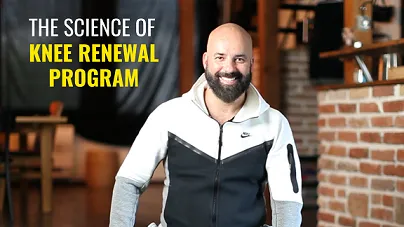Imagine a world where every romantic relationship is filled with love, happiness, and stability. In this article, you will discover practical and effective strategies on how to build and maintain healthy romantic relationships. By incorporating these tips into your life, you will be able to create a strong foundation, nurture your connection, and overcome challenges together. Whether you are currently in a relationship or seeking one, these insights will guide you towards fostering a fulfilling and lasting partnership. Get ready to embark on a journey towards building and maintaining healthy romantic relationships that will bring joy and fulfillment to your life.
Communication
Communication is the foundation of any healthy romantic relationship. It is through open and honest communication that we can truly understand and connect with our partners. Open and honest communication involves being transparent about our thoughts and feelings, as well as actively listening to our partner’s perspective. By creating a safe space for open and honest dialogue, we can foster trust and emotional intimacy.
Active listening is an essential skill in effective communication. It involves fully focusing on and comprehending what our partner is saying, without interrupting or formulating a response in our minds. By actively listening, we show respect and give our partner the space to express themselves fully. This allows us to gain a deeper understanding of their thoughts and emotions, and helps prevent miscommunication or misunderstandings.
Non-verbal communication is just as important as verbal communication in a romantic relationship. It includes facial expressions, body language, tone of voice, and other cues that convey emotions and messages. Effective non-verbal communication involves being aware of our own body language and actively interpreting our partner’s non-verbal cues. By paying attention to non-verbal communication, we can better understand our partner’s emotions and strengthen our connection.
Conflict is inevitable in any relationship, but how we handle and resolve conflict through communication can make all the difference. Resolving conflict through communication involves actively listening to our partner’s concerns without becoming defensive, expressing our own feelings and needs calmly and assertively, and finding common ground through compromise. By approaching conflict with empathy and open-mindedness, we can reach resolutions that strengthen our relationship rather than weaken it.
Trust and Honesty
Trust is the cornerstone of a healthy romantic relationship. Building trust requires consistent and dependable actions that align with our words. It involves being reliable, keeping our promises, and being honest and transparent about our thoughts and feelings. By demonstrating trustworthiness, we create a secure and safe foundation for our relationship to thrive.
Honesty and transparency go hand in hand with trust. Being honest means openly sharing our thoughts, feelings, and experiences with our partner. It involves being vulnerable and authentic, even when it may be difficult. Transparent communication means not withholding important information or keeping secrets. By being honest and transparent, we foster a genuine and deep connection with our partner.
Maintaining trust is crucial to the longevity of a healthy romantic relationship. This involves consistently living up to our partner’s expectations, being reliable and dependable, and continuing to communicate openly and honestly. Trust can be built over time, but it can be lost in an instant. It is important to prioritize trust and strive to maintain it through our actions and words.
When trust has been breached, rebuilding trust requires time, effort, and patience. It involves taking responsibility for our actions, seeking forgiveness, and being consistent in our behavior. Rebuilding trust also requires open and honest communication, where both partners can express their emotions, concerns, and expectations. By actively working towards rebuilding trust, we can strengthen our relationship and create a deeper bond.
Emotional Support
Emotional support is a crucial aspect of a healthy romantic relationship. It involves understanding and validating our partner’s emotions, providing comfort and encouragement during challenging times, and being emotionally present in their lives. By offering emotional support, we create a nurturing and uplifting environment where both partners can thrive.
Understanding and validation are essential components of emotional support. It involves actively listening to our partner’s emotions, without judgment or dismissiveness. By validating our partner’s feelings, we acknowledge their experiences and show empathy. This creates a sense of safety and understanding, and strengthens our emotional connection.
Providing comfort and encouragement is another way to offer emotional support. It involves offering a shoulder to lean on during difficult times, providing reassurance and kind words, and actively engaging in activities that bring joy to our partner’s life. By being a source of comfort and encouragement, we create a positive and uplifting atmosphere within our relationship.
Active emotional presence is crucial in maintaining emotional support. It means being attentive and engaged in our partner’s life, actively participating in conversations and activities, and demonstrating genuine care and concern. By being emotionally present, we show our partner that they are valued and loved, and foster a deep and meaningful connection.
Empathy and compassion are fundamental in providing emotional support. It involves putting ourselves in our partner’s shoes, imagining their emotions and experiences, and responding with understanding and care. By showing empathy and compassion, we create a sense of unity and togetherness, and strengthen our emotional bond.
Quality Time
Quality time is essential in building and maintaining a healthy romantic relationship. It involves prioritizing time together, creating meaningful rituals, engaging in shared activities, and maintaining individual interests. By dedicating quality time to our relationship, we deepen our connection and create lasting memories.
Prioritizing time together means making our relationship a priority in our lives. It involves setting aside dedicated time for each other, free from distractions and responsibilities. By making quality time a priority, we communicate the importance of our relationship and create a strong foundation for growth and connection.
Creating meaningful rituals is a powerful way to enhance the quality of time spent together. It can be as simple as having a weekly date night, cooking together, or going for a walk. Rituals provide a sense of stability and consistency in our relationship and create a shared sense of meaning and purpose.
Engaging in shared activities helps to create shared experiences and memories. It involves finding activities that both partners enjoy and actively participating in them together. By engaging in shared activities, we cultivate a sense of togetherness and strengthen our bond.
While spending quality time together is important, it is equally crucial to maintain individual interests and allow each other space for personal growth. By nurturing our own passions and interests, we bring a sense of fulfillment and happiness into our relationship. Supporting and encouraging our partner in pursuing their individual interests also fosters a sense of autonomy and independence within the relationship.
Respect
Respect is a vital aspect of any healthy romantic relationship. It involves respecting each other’s boundaries, valuing each other’s opinions, recognizing and appreciating differences, and respecting personal autonomy. By practicing respect, we create an atmosphere of understanding, acceptance, and equality within our relationship.
Respecting boundaries means honoring and acknowledging our partner’s limits and preferences. It involves open and honest communication about our boundaries and actively ensuring that they are respected. By respecting each other’s boundaries, we create a sense of safety and trust within the relationship.
Valuing each other’s opinions is essential in a respectful relationship. It involves actively listening to our partner’s perspective, even if we may disagree. By valuing our partner’s opinions, we show that their thoughts and ideas are meaningful to us and that their voice is heard and respected.
Recognizing and appreciating differences is crucial in fostering a respectful relationship. It involves embracing and celebrating each other’s unique qualities and perspectives, rather than trying to change or fix them. By recognizing and appreciating our differences, we create an atmosphere of acceptance and inclusivity within our relationship.
Respecting personal autonomy means allowing each other the freedom to make decisions and choices independently. It involves supporting and encouraging our partner’s individual growth and respecting their autonomy in all aspects of life. By respecting personal autonomy, we foster a sense of independence and self-expression within the relationship.
Intimacy
Intimacy is a deep and meaningful connection that goes beyond physicality. It involves emotional intimacy, physical intimacy, and intellectual intimacy. Maintaining intimacy over time requires active effort and a commitment to deepening our connection with our partner.
Emotional intimacy is the foundation of a strong and fulfilling romantic relationship. It involves sharing our deepest thoughts, fears, and desires with our partner, as well as actively listening and empathizing with their emotions. By fostering emotional intimacy, we create a safe and nurturing space where trust and vulnerability can flourish.
Physical intimacy encompasses both sexual and non-sexual touch and connection. It involves expressing love, desire, and affection through physical gestures such as hugging, holding hands, and kissing. By prioritizing physical intimacy, we deepen our bond and create a physical connection that reinforces our emotional connection.
Intellectual intimacy involves engaging in deep and meaningful conversations and sharing intellectual interests and pursuits. It involves discussing ideas, challenging each other’s perspectives, and supporting each other’s intellectual growth. By cultivating intellectual intimacy, we stimulate our minds and create a strong intellectual connection.
Maintaining intimacy over time requires ongoing effort and attention. It involves continuously nurturing our emotional connection, prioritizing physical affection and touch, and actively engaging in intellectual pursuits together. By making intimacy a priority, we ensure that our relationship remains fulfilling and continues to grow.
Commitment
Commitment is the dedication and devotion to our partner and our relationship. It involves sharing goals and values, committing to personal and relationship growth, working through challenges together, and planning for the long-term. By committing to our relationship, we create a solid foundation for a healthy and thriving partnership.
Shared goals and values provide a sense of direction and unity within our relationship. It involves aligning ourselves with our partner’s dreams and aspirations, and actively working towards achieving them together. By sharing goals and values, we create a sense of purpose and teamwork within our relationship.
Commitment to personal and relationship growth means continuously investing in our own personal development and supporting our partner’s growth as well. It involves actively seeking opportunities for self-improvement, as well as encouraging and supporting our partner’s growth. By committing to personal and relationship growth, we create a dynamic and evolving partnership.
Working through challenges is an inevitable part of any relationship. It involves facing obstacles together, communicating openly and honestly, and finding solutions that strengthen our bond. By working through challenges as a team, we demonstrate our commitment to our relationship and create resilience that can withstand the ups and downs of life.
Long-term relationship planning involves setting goals and making plans for the future together. It involves discussing and envisioning our shared future, such as marriage, children, or shared experiences. By planning for the long-term, we create a sense of stability and commitment within our relationship.
Compromise and Flexibility
Compromise and flexibility are essential in maintaining a healthy and balanced romantic relationship. They involve finding win-win solutions, being open to different perspectives and opinions, adapting to change, and balancing individual needs with the needs of the relationship. By practicing compromise and flexibility, we create a harmonious and fulfilling partnership.
Finding win-win solutions means seeking resolutions that satisfy both partners’ needs and desires. It involves active communication, brainstorming, and finding middle ground that benefits both individuals. By finding win-win solutions, we create a sense of fairness and equality within our relationship.
Flexibility in decision-making means being open to different perspectives and being willing to revise or change our opinions. It involves being adaptable and open-minded, even when faced with unexpected circumstances or challenges. By practicing flexibility in decision-making, we foster a sense of collaboration and growth within our relationship.
Adapting to change is crucial in maintaining a healthy romantic relationship. It involves embracing and navigating life’s transitions and challenges together. By being flexible and adaptable, we demonstrate our commitment to growth and resilience as a couple.
Balancing individual needs with the needs of the relationship is key to a healthy and balanced partnership. It involves considering both our own needs and desires, as well as the needs and desires of our partner. By striking a balance between individuality and togetherness, we create a relationship that fosters personal growth and fulfillment for both partners.
Self-Care
Self-care is essential in building and maintaining a healthy romantic relationship. It involves prioritizing our individual well-being, setting and communicating boundaries, managing stress and prioritizing self-care practices, and seeking support when needed. By practicing self-care, we ensure that we are able to show up fully and authentically in our relationship.
Maintaining our individual well-being is crucial in nurturing a healthy relationship. It involves taking care of our physical, mental, and emotional health through regular exercise, healthy eating, self-reflection, and seeking professional help when needed. By prioritizing our well-being, we bring our best selves to the relationship and create a foundation for happiness and fulfillment.
Setting and communicating boundaries is essential in maintaining a healthy balance within the relationship. It involves clearly defining our limits and expressing our needs and expectations to our partner. By setting and communicating boundaries, we create a sense of respect and understanding, ensuring that our own needs are met while also fostering a harmonious partnership.
Managing stress and prioritizing self-care practices helps us maintain our overall well-being and prevent burnout. It involves recognizing our stress triggers, implementing stress management techniques such as exercise and mindfulness practices, and prioritizing activities that bring us joy and relaxation. By effectively managing stress and prioritizing self-care, we show up as happier and more present partners in the relationship.
Seeking support when needed is an important aspect of self-care. It involves recognizing when we need help or guidance and reaching out to trusted friends, family members, or professionals for support. By seeking support, we acknowledge that we are not alone and create a support network that can help us navigate challenges and promote personal growth.
Shared Responsibility
Shared responsibility is a key component of a healthy and balanced romantic relationship. It involves an equal distribution of household tasks, joint decision-making, supporting each other’s goals and aspirations, and cultivating a team mentality. By embracing shared responsibility, we create a partnership built on equality and collaboration.
Equal distribution of household tasks means sharing the responsibilities and chores of running a household. It involves dividing tasks such as cooking, cleaning, and grocery shopping in a fair and equitable manner. By sharing household tasks, we prevent feelings of resentment or inequality and create a sense of partnership in managing our shared living space.
Joint decision-making means involving both partners in major decisions that impact the relationship. It involves actively seeking and considering each other’s thoughts and opinions, and making choices that reflect both individuals’ needs and desires. By making joint decisions, we foster a sense of equality and respect within our relationship.
Supporting each other’s goals and aspirations is crucial in creating a fulfilling and supportive partnership. It involves actively encouraging and supporting our partner’s personal and professional goals, as well as providing emotional and practical support. By supporting each other’s goals, we demonstrate our commitment to each other’s growth and well-being.
Cultivating a team mentality means viewing our relationship as a partnership where both individuals work together towards common goals. It involves embracing a sense of unity, collaboration, and shared responsibility in all aspects of life. By cultivating a team mentality, we create a strong and supportive foundation for our relationship.
In conclusion, building and maintaining a healthy romantic relationship requires open and honest communication, trust and honesty, emotional support, quality time, respect, intimacy, commitment, compromise and flexibility, self-care, and shared responsibility. By actively practicing these foundational elements, we can create a strong and fulfilling partnership that stands the test of time.








